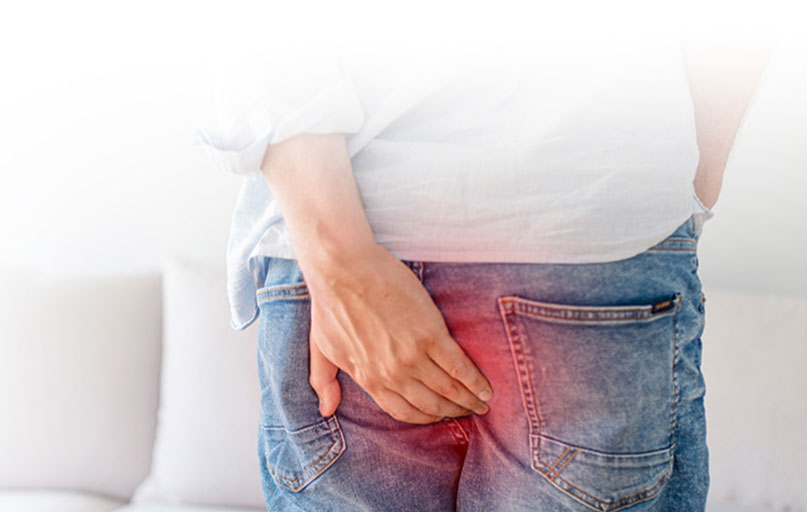Piles Treatment
The mode of treatment used will greatly depend on the type, location, size and severity of the piles. Fortunately, not all cases of piles require surgery.
Dietary & Lifestyle Changes
In mild cases, you may be able to obtain symptomatic relief with simple dietary and lifestyle changes:
- Increasing fibre intake while staying well-hydrated to prevent constipation
- Using sitz baths or cold packs can help to ease pain and swelling
- Refraining from excessive straining during bowel movements
- Losing excess weight to reduce pressure around the veins of the anus and rectum
- Having an active lifestyle and refraining from prolonged sitting


Oral & Topical Medication
In mild to moderate cases, the doctor may recommend oral or topical medications that can have the effect of:
- Stabilising the walls of blood vessels to reduce risk of injury
- Softening stools to reduce straining during bowel movements
- Stimulating bowel movement to prevent constipation
- Reducing pain, swelling and inflammation of piles
- Numbing pain around the anal area
- Decreasing discomfort caused by pain and itching
Minimally Invasive Treatments
In more serious cases where lifestyle changes and medications do not suffice, your doctor may recommend minor procedures such as:
Rubber band ligation:
An elastic ring is applied at the base of the haemorrhoid, which eventually cut off blood supply to the haemorrhoid, causing it to shrink and fall off within a few days. These are suitable for internal Grade 1 or Grade 2 haemorrhoids.
Injection (sclerotherapy):
A special solution is injected into the haemorrhoid, causing it to shrink.
Coagulation:
Performed either through laser or infrared light or heat, coagulation basically cause small and bleeding internal haemorrhoids to harden and shrink.
Surgical Procedures
In severe cases such as symptomatic third- or fourth-degree haemorrhoids; haemorrhoids that have recurrent bleeding with complications such as anemia (low blood count);, surgery may be required in order to remove the haemorrhoid completely.
Conventional haemorrhoidectomy:
The most effective way to treat serious or recurrent haemorrhoids, this method involves removing the haemorrhoid with electocautery.
Stapled haemorrhoidectomy:
This involves the excision of excess haemorrhoidal tissue using a stapling device; and this has the effect of restoring haemorrhoids back to their rightful position within the anal canal.
Laser haemorrhoidectomy:
This involves utilizing a laser fibre that deploys laser shots on the haemorrhoids causing shrinkage. This has less postoperative discomfort but is only suitable for certain type of haemorhoids. This is a relatively new procedure in Singapore.
If you’ve been diagnosed with piles, rest assured that your piles doctor will determine the most effective mode of treatment with your best interests in mind. Contact us for a consultation today.
